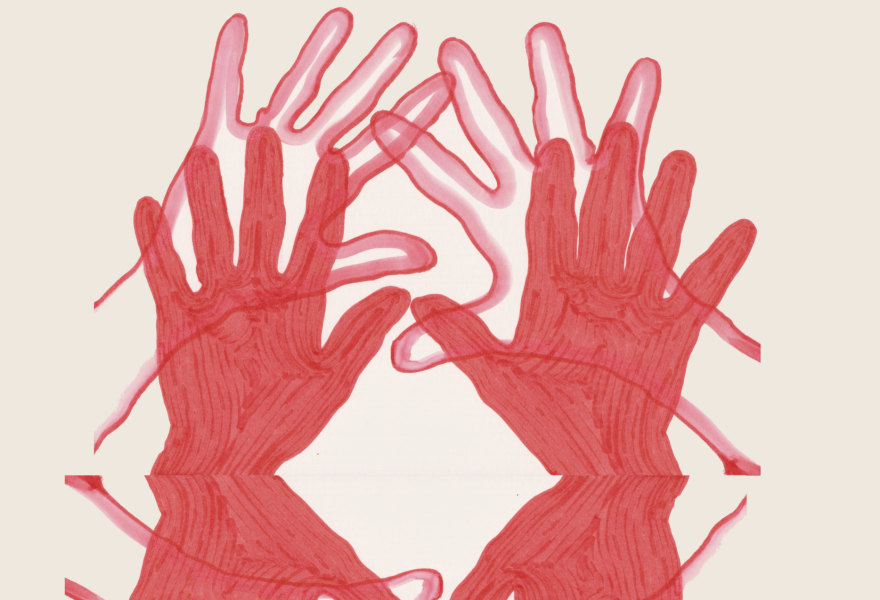14 march 2022, Wouter van den Eijkel
Benefit exhibition Rozenstraat with scarves by famous artists
In the Amsterdam project space Rozenstraat – a rose is a rose is a rose, a benefit exhibition can be seen in the front space with limited edition scarves by, among others, Maaike Schoorel, Melissa Gordon, Klaas Kloosterboer and Pauline Curnier Jardin. Half of the proceeds go to the project space.
The silk and silk cotton scarves with work by Pim Blokker, Merijn Bolink, Pauline Curnier Jardin, Klaas Kloosterboer, Philippa van Loon, Lin de Mol, Maria Pask, Maaike Schoorel and Julius Stibbe were produced by The House of U. Each scarf comes in an edition of 20, 10 of which are for sale at the project area. The scarves are available from 350 euros.
Right to exist
Curator Sjoerd Kloosterhuis explains why the project space initiated this action. “A space like this runs on so-called project funds. You are allowed to spend these funds on anything except on utilities. The proceeds therefore do not go to new projects, but are intended to cover such costs.” Kloosterhuis is pleased with the benefit exhibition: “The fact that galleries are willing to bear the production costs and artists donate half of an edition means that you have a right to exist.” The participating galleries are Stigter Van Doesburg, Lang Art and Ellen de Bruijne Projects.
Born out of protest
ROZENSTRAAT – a rose is a rose is a rose was created in response to the disappearance of a number of independent project spaces in Amsterdam. After the closure of the SMBA, the project space of the Stedelijk Museum, in 2016, a number of Amsterdam art professionals took over the space on Rozenstraat to preserve it as a platform for displaying contemporary art.
After extensive renovations and a difficult start due to the pandemic, the space is now open to the public with the Frenemy exhibition in the rear with work by Rijksakademie alumni Josefin Arnell and Margaret Haines (both born 1984/RA 2015-16). Both films were commissioned by the project space and the exhibition gives one a good impression of the opportunities and possibilities that a project space offers young artists.
Frenemy
Although Haines and Arnell's work is not similar in execution, the two films in Frenemy revolve around alternative forms of friendship. For example, Arnell and Haines regard magic, animism, witchcraft and communication between humans and animals as a given and not as a form of escapism. This is most evident in Josefin Arnell's Wild Filly Story (2020).
Arnell's film is directed in a style resembling reality TV shows and is set on a care farm in Amsterdam North where horses are used as a therapeutic tool. The idea behind the film partly goes back to childhood experiences of the Swedish artist: “As a child when my home was unsafe, I went to the stable, I picked up shit to ride for free. Trying to master a big animal body when actually I was dead-scared.”
The film focuses on five girls and their love for horses, as well as the will to control the animal and, by extension, the unruly nature of friendship that lies somewhere between loving and controlling. In fact, the girls need the horses to feel better. Their relationship with the horses gradually becomes a codependent one culminating in a BBQ exclusively serving horse meat.
The scarves and the Frenemy exhibition can be seen at ROZENSTRAAT – a rose is a rose is a rose (Rozenstraat 59, Amsterdam)



